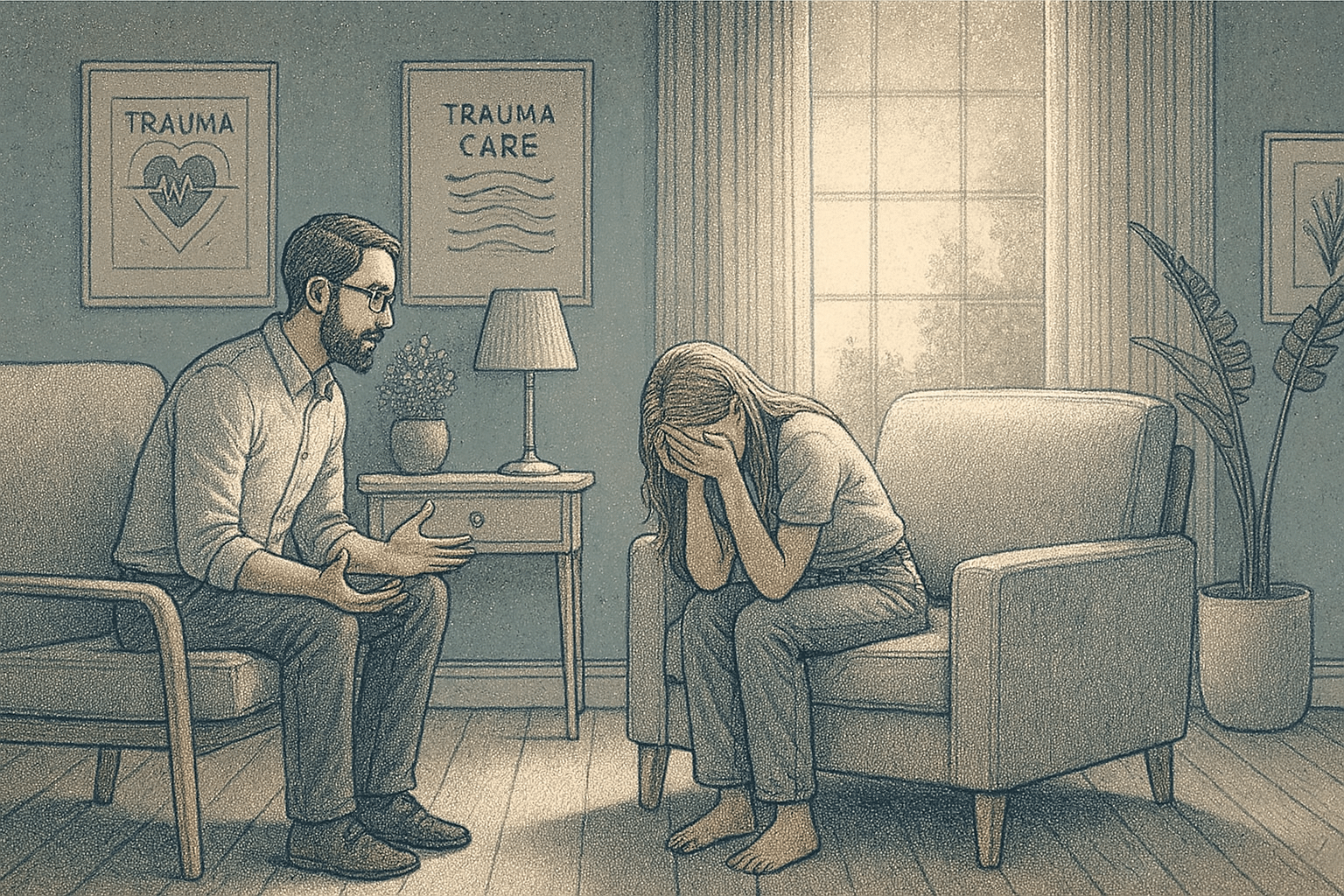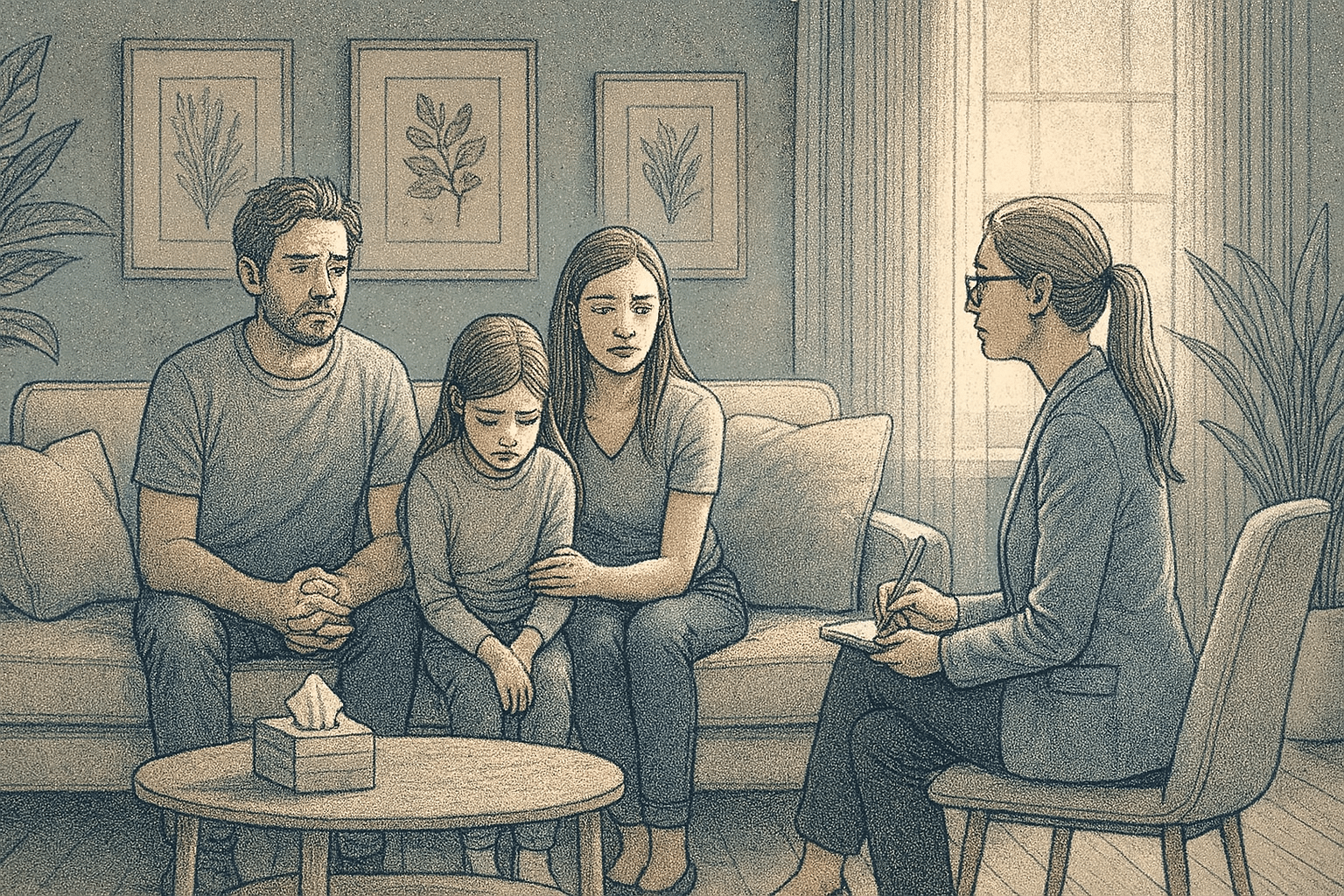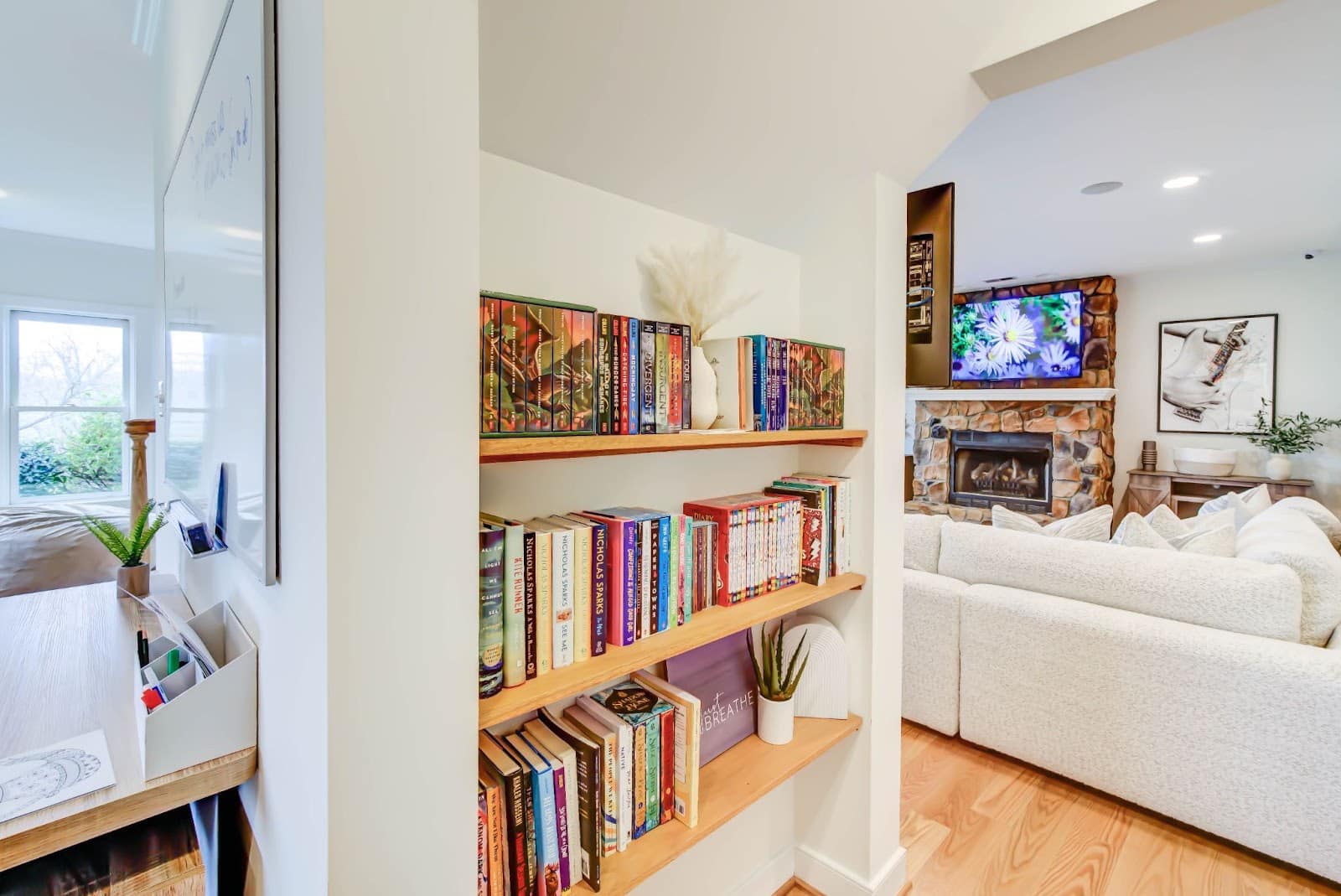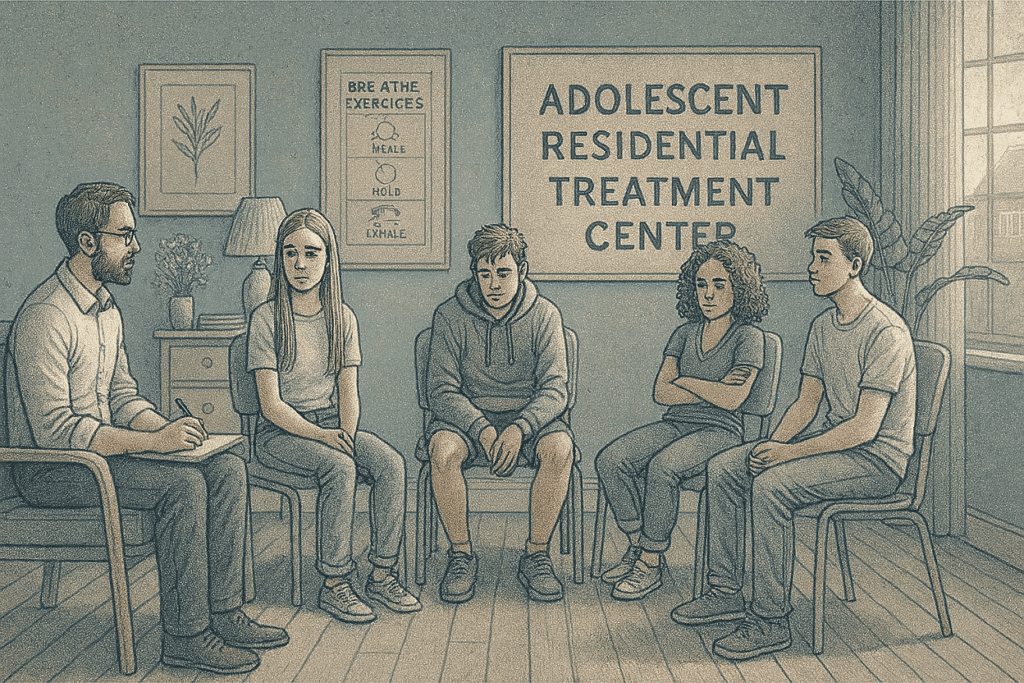Key Takeaways
- Finding the right residential treatment center in California can dramatically improve outcomes for teens struggling with mental health or behavioral challenges
- California offers various levels of care, including 24/7 residential treatment centers (RTCs), partial hospitalization programs (PHPs), and intensive outpatient programs (IOPs)
- Many insurance plans cover adolescent mental health treatment, with options ranging from private insurance to Medi-Cal coverage
- The admission process typically involves an initial assessment, with treatment usually lasting 30-90 days, depending on individual needs
- Mission Prep is a trusted provider of adolescent residential care in California, combining clinical expertise with family-centered support, secure environments, and strong educational integration to help teens thrive beyond treatment.
Why California Teens Need Specialized Mental Health Treatment
California teens are facing a sharp rise in mental health struggles like depression, anxiety, and substance use. These issues span all backgrounds and communities, creating a demand for care that far exceeds availability. Specialized residential treatment centers offer the kind of focused, intensive support teens need during these vulnerable years; support that can make a lasting impact when outpatient care falls short.
While outpatient therapy can help with mild concerns, it often isn’t enough for teens battling severe mood swings, self-harm, addiction, or academic collapse. Residential programs provide 24/7 structure and a therapeutic setting that promotes lasting change. This environment gives teens space to process deeper issues and build healthy coping strategies, especially those dealing with trauma or complex diagnoses.
It’s not always easy to know when a teen needs this level of care, but red flags include ongoing self-harm, suicidal thoughts, intense emotional instability, drug use, aggression, or a sudden drop in school performance. If home life becomes chaotic, marked by constant conflict or safety concerns, that’s also a sign it may be time to consider residential help.
Though making that choice can be tough, many parents find relief in seeing their teen finally receive the support they need to stabilize, grow, and move toward recovery in a safe and guided space.
Mission Prep Healthcare specializes in mental health treatment for teens aged 12-17, offering residential and outpatient programs for anxiety, depression, trauma, and mood disorders. Our therapies include CBT, DBT, EMDR, and TMS, tailored to each adolescent’s needs.
With a structured, supportive environment, we integrate academic support and family involvement to promote lasting recovery. Our goal is to help teens build resilience and regain confidence in their future.
Types of California Adolescent Treatment Centers
Residential Treatment Centers (RTCs): 24/7 Structured Care
RTCs offer full-time, immersive care for teens who need a high level of support. In these programs, adolescents live on-site and follow a daily schedule packed with therapy, academics, and activities. Some Smaller centers create a more personalized experience with just a handful of teens per group. With a full team of professionals guiding treatment, RTCs help teens reset in a stable, trigger-free environment, often over the course of 30 to 90 days.
Partial Hospitalization Programs (PHPs): Intensive Daytime Treatment
PHPs provide comprehensive care during the day while allowing teens to return home at night. This setup balances structured therapy with time at home and can serve either as a next step after residential care or a primary treatment for teens who don’t need 24/7 supervision. It’s a good fit for families seeking strong support without full-time separation.
Intensive Outpatient Programs (IOPs): After-School Support
IOPs are more flexible, offering treatment a few days per week, usually in the late afternoon. Teens continue attending school while participating in therapy sessions that help them manage mental health or other related challenges. It’s a practical option for those with moderate needs or transitioning out of more intensive programs.
Specialized Programs for Specific Conditions
Some centers tailor care to specific conditions like trauma, depression, or eating disorders. These programs use targeted methods, like EMDR for trauma or relapse prevention strategies for addiction, and are led by professionals with focused expertise. This approach helps teens work through complex issues with the right tools and support in place.

Specialized trauma programs use targeted methods like EMDR with professionals who really understand these complex issues and know how to help teens heal
California’s Top Treatment Center Locations
Mission Prep
Mission Prep Healthcare stands out as a premier residential treatment center with a strong focus on care specifically for adolescents aged 12 to 17. Our programs support teens facing challenges like anxiety, depression, trauma, mood disorders, and other related challenges. Treatment takes place in licensed, home-like settings that focus on emotional safety, routine, and community. Each care plan is designed for the individual, blending therapy, educational support, and active family involvement to build resilience and support lasting recovery.
Newport Academy
Newport Academy offers evidence-based modalities tailored for trauma, addiction, and mental health challenges. The program includes academic support, family therapy, and experiential therapies such as art and equine therapy to address emotional healing holistically. It operates multiple locations across California.
Evolve Treatment
Known for small client groups (maximum of six teens per cohort), Evolve Treatment provides intimate, individualized care in a cozy, home-like setting. Its programming emphasizes 24/7 clinical support, trauma-informed care, and relapse prevention with a strong emphasis on community involvement.
Treatment Approaches and Therapies
Evidence-Based Therapeutic Models
Top programs in California rely on proven methods like, Cognitive Behavioral Therapy (CBT), Dialectical Behavior Therapy (DBT), and Acceptance and Commitment Therapy (ACT), to help teens manage emotions, reshape thought patterns, and build healthier habits. These therapies are personalized, not cookie-cutter, and often combined with trauma-informed care, family therapy, or motivational interviewing. As each teen’s needs shift, their treatment plan is updated to stay effective and relevant.
Gender-Specific Treatment Programs
Some treatment centers separate care by gender to better support emotional safety and therapeutic progress. These programs address issues that show up differently for boys and girls, creating space for open dialogue and strategies that target gender-related risks and strengths in recovery.
Academic Components During Treatment
Education is built into daily life at many residential centers, so teens can keep up with school while getting care. Some programs offer dedicated school hours with credentialed teachers and support for IEPs or learning differences. Teens often have a chance to catch up on credits too, easing the transition back into the classroom after treatment.
Family Involvement and Therapy
Recovery isn’t just about the teen; it’s a family effort. Most centers schedule weekly family therapy, plus workshops and coaching to help parents build stronger communication and set up a smoother home environment after discharge. Virtual sessions make it easier for families farther away to stay involved.

Recovery works best when the whole family is involved, not just the teen, which is why family therapy and communication coaching are so crucial to long-term success
Insurance Coverage for Teen Treatment in California
Insurance Plans That Cover Adolescent Mental Health Treatment
Many private insurance plans include coverage for teen mental health treatment, especially when residential care is considered medically necessary. PPO plans usually give families more freedom in choosing providers, while HMO plans tend to limit options to in-network facilities. Coverage often includes therapy, psychiatric services, and medical monitoring, but not always education or extras. Because every plan varies, families need to review benefits closely and clarify what’s actually covered.
Understanding Medi-Cal Coverage for Residential Treatment
Medi-Cal can cover residential treatment for teens in California, but it comes with extra steps. Approval depends on medical necessity and availability at Medi-Cal certified providers. County mental health departments often play a role in the decision, and not all centers accept Medi-Cal or have open spots for it. Families using Medi-Cal should coordinate with both the treatment center and the county early on to understand what’s available and what’s covered.
Private Insurance Requirements and Limitations
Residential coverage through private insurance usually involves pre-approval and regular reviews to extend coverage. Many plans set strict limits on stay duration and may only authorize treatment after trying outpatient care first, unless it’s a crisis. Some plans also apply higher co-pays or co-insurance for residential care. Knowing these limits in advance helps avoid surprise costs and delays during the admissions process.
Why Mission Prep is the Best Choice for Adolescent Residential Treatment in California

Mission Prep creates residential spaces that feel like home rather than institutions, where teens can focus on healing in comfortable, supportive environments.
Choosing the right treatment program for your teen can feel overwhelming. At Mission Prep, we understand the weight of that decision and focus on building real change for both teens and their families. Every part of our approach is grounded in trust, open communication, and support that lasts beyond the treatment phase.
Parents are not sidelined in the process; they play a central role. Teens are also encouraged to be active participants in their own care. This kind of partnership creates stronger relationships and helps everyone feel more connected throughout the journey.
Our clinical approach combines evidence-based methods like CBT and DBT with hands-on tools for daily life. The goal isn’t to shield teens from challenges but to help them face those challenges with confidence and clarity. With support for anxiety, depression, trauma, or other emotional difficulties, we guide each teen toward steady progress.
Mission Prep offers residential treatment, outpatient programs, and virtual options across California. Our residential homes are safe, structured spaces that provide round-the-clock care. Outpatient and telehealth services allow teens to continue their recovery while maintaining flexibility with other parts of life.
Each treatment plan is built around the specific needs of the teen. This includes academic support to keep them on track in school, along with creative therapies that help them explore emotions and rebuild a sense of purpose.
Families who come to Mission Prep often say they feel seen and supported. Our team stays in close communication, helps navigate insurance, and ensures every family knows what to expect at each step.
Healing takes time, but it begins with one decision. If your teen is struggling, we’re ready to help you take that step forward, together.
Frequently Asked Questions (FAQ)
Can parents visit during residential treatment?
Yes, after an initial adjustment period, most centers allow regular, structured visits. For example, places like Newport Academy include family therapy to support healing together.
Will my teen fall behind in school during treatment?
No. Most centers have credentialed teachers and coordinate with schools to keep teens on track. Credit transfers and transition plans help them return smoothly.
What happens if my insurance denies coverage?
You can appeal with help from the treatment center. If needed, request an external review or seek support from insurance advocates. Many centers also offer payment plans.
How do I know if a treatment center is right for my child?
Look for programs that match your teen’s needs and values. Consider their approach, staff, setting, and experience with similar challenges.
Why should families choose Mission Prep Healthcare for adolescent mental health treatment?
Mission Prep Healthcare is dedicated to creating genuine, sustainable change for teens and families. Our programs for ages 12–17 combine evidence-based care, academic support, and innovative family-focused interventions in safe, home-like settings. We involve families at every step, prioritize open communication, and equip teens with life skills for lasting resilience, making us a top choice for adolescent residential mental health services in California.





















